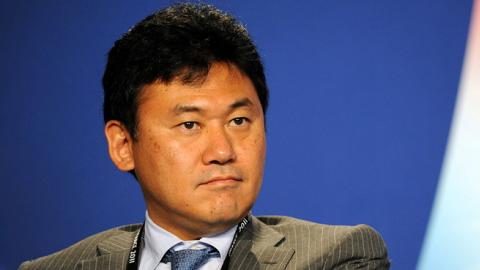On March 1, 2010, Hiroshi Mikitani, the chief executive of Japanese e-commerce giant Rakuten, used a video link to address a meeting of the company’s 10,000 employees world-wide. Speaking in English, he announced that Rakuten henceforth would be an English-only organization. In two years’ time, he said, every interaction, spoken and written, would be conducted in English—even among the 7,100 workers whose first and often only language was Japanese.
“Our goal is to catch up with the global market,” Mr. Mikitani said. He explained that a common language was the only way to share business knowledge quickly and effectively across Rakuten’s international operations. “Englishnization”—a term he coined—was an essential aspect of the company’s growth strategy, he said. The CEO further announced a draconian measure to enforce his new mandate: Employees who did not, within two years, score above 650 on the 990-point Test of English for International Communication would face demotion or dismissal.
After the passage of those two years, it was clear that Mr. Mikitani’s radical move was working. Some 90% of Rakuten’s Japanese workforce met the language requirement, and those who didn’t were given a six-month grace period to improve their scores. The company was globalizing at a fast pace, expanding its operations in the U.S. and entering other countries.
How did Rakuten do it—and was it worth it? Tsedal Neeley, a professor at Harvard Business School, provides a detailed account in “The Language of Global Success.” Ms. Neeley spent five years interviewing Rakuten managers and workers around the globe—in Japan, the U.S., Europe, South America and Asia. Her book is an interesting read, despite frequent lapses into HBS case-study-ese.
One of her most intriguing findings has to do with the effect of the English mandate on Rakuten’s corporate culture. Mr. Mikitani believed in “changing perspectives by changing language,” Ms. Neeley writes. By forcing employees to speak English, the CEO wanted to move his company “away from its traditional Japanese hierarchical system, one characterized by rules, deference to authority, and perceptions of status, toward a perspective that would enable openness and assertion.” He saw English not just as a tool to advance Rakuten’s global expansion by facilitating communication around the globe but also as a way to create a more outspoken, egalitarian mind-set among Japanese employees.
A year or so into the English mandate, Mr. Mikitani also began to emphasize Japanese practices and cultural concepts that were essential to Rakuten’s way of doing business. These ranged from something as mundane as the company’s requirement that every employee wear a name-badge—a policy loathed by Rakuten’s American employees in the U.S.—to the more elusive concept of omotenashi, which translates roughly as “hospitality.” Now English-speaking Japanese workers were able to communicate the importance of wearing badges, practicing omotenashi and following other Japanese customs to non-Japanese colleagues, who were encouraged to accept them.
The Rakuten example, Ms. Neeley concludes, shows that Western culture doesn’t have to dominate in an English-speaking global company. At Rakuten, English became a “decoupling force between language and culture,” she writes, allowing the Japanese company to “forcefully assert its cultural identity.”
The English mandate was most difficult for Japanese-speaking employees, who had to work hard to reach the required level of fluency in just two years. They succeeded, Ms. Neeley says, for two reasons: Management stayed on message, explaining repeatedly why English was essential for the company’s success; and Rakuten provided intensive language classes, which employees attended during their workday. Mr. Mikitani had learned English as a child in the U.S. when his father was a visiting scholar at Yale, and he believed that immersive learning was the best way to learn a language.
From the outset, Mr. Mikitani had envisioned his plan for Englishnization at Rakuten as a kind of test bed for other Japanese companies. He saw English as a way to help insular Japanese firms become globally competitive, thereby assisting in the revival of the Japanese economy. The jury is out on that goal, as it is on another of his objectives—improving the English skills of the wider Japanese population.
For a long time, Japanese schools haven’t taught English very well, as I discovered when I was living in Tokyo in the mid-1970s. I became a minor celebrity among the junior-high-school set due to my appearance on a national TV show that taught English. Wherever I traveled in the country, I’d run into kids who would run up to me and shout, “This is a pen!”—the first line in our textbook. Few youngsters were able to say much else in English. More recently, Ms. Neeley notes a 2009 study of English proficiency in 30 Asian nations in which Japan ranked second from the bottom.
Mr. Mikitani has advised Prime Minister Shinzo Abe on improving English-language education in Japan. Mr. Abe—whose own English is good—wants more of his countrymen to speak fluent English by the time of the 2020 Tokyo Olympics. If the prime minister takes his cue from the Rakuten example, there’s a decent chance he’ll succeed. As I learned to say during my time in Tokyo: “ganbatte,” or “good luck.”















